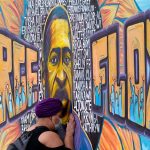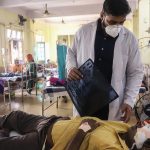What is repetitive transcranial magnetic stimulation and how does it actually work?
A line in this week’s federal budget allocating A$288.5 million to repetitive transcranial magnetic stimulation (rTMS) therapy might pass most people by.
A line in this week’s federal budget allocating A$288.5 million to repetitive transcranial magnetic stimulation (rTMS) therapy might pass most people by.
Plants can hurt us (we see you, poison oak), but they can also heal. Many of modern medicine’s powerful drugs, like aspirin, trace their roots back...
Immunotherapy that enhances the body’s immune response has transformed the landscape for cancer treatment. These treatments have led to unprecedented survival outcomes in some cancer types,...
A new report from researchers at The National Drug and Alcohol Research Center (NDARC), UNSW Sydney, has found that a person’s characteristics, their treatment, and the...
A dengue virus vaccine candidate has passed an important milestone, with promising results in animal model testing providing hope to the 390 million people infected every...
UNSW medical researchers have found a way to starve pancreatic cancer cells and ‘disable’ the cells that block treatment from working effectively. Their findings in mice...
MDMA-assisted therapy is safe and effective for the treatment of people with severe post-traumatic stress disorder (PTSD), according to a phase 3 clinical trial published in...
Thin-film electrodes developed at Lawrence Livermore National Laboratory (LLNL) have been used in human patients at the University of California, San Francisco (UCSF), generating never-before-seen recordings...
Research has revealed non-hospitalized COVID-19 patients continue to present symptoms long after infection and even more have blood biochemical abnormalities.
Because of the ongoing pandemic, lifestyles have been subjected to drastic and dynamic changes, and many work- and study-related activities are now carried out online exclusively....








